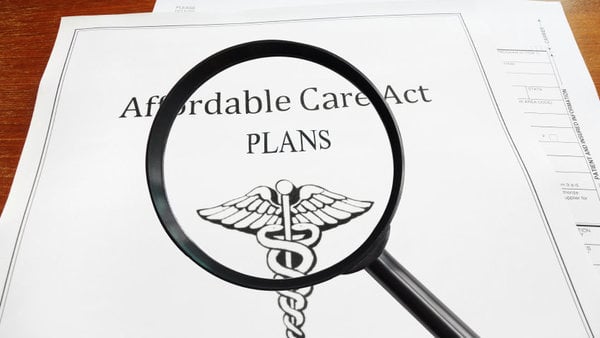 By one estimate, premiums on the federal marketplace have risen 71 percent, while premiums on state exchanges increased by 40 percent. (Photo: Getty)
By one estimate, premiums on the federal marketplace have risen 71 percent, while premiums on state exchanges increased by 40 percent. (Photo: Getty)
After a very rocky rollout of a number of state exchanges in 2013 when the Affordable Care Act marketplaces first became effective, policymakers in six states believe they can now piggyback on the successful ones – as well as leverage the latest technology — to launch their own state exchanges.
Maine is one of them, working to launch its exchange in 2021, Jeanne Lambrew, commissioner of the state's Department of Health and Human Services tells Stateline.
"A lot of kinks have been worked out, and the ability to set up marketplaces that run effectively and efficiently has gone up," Lambrew says. "We know much more now than states knew back in 2013."
Nevada launched its exchange earlier this month.
"Nevada spent two years working with our colleagues in other state-based exchanges," says Janel Davis, spokeswoman for the state exchange, "looking at the mechanics of their operations to understand not only what would be required for Nevada's own implementation, but also to understand what efficiencies could be achieved."
Stateline cites a report by the National Academy for State Health Policy that found that between 2016 and 2018 – the period in which many health policy experts say Trump administration actions destabilized health insurance markets — premiums on the federal marketplace, HealthCare.gov, rose 71 percent, while premiums on state exchanges increased by 40 percent.
Moreover, while enrollment on HealthCare.gov fell by 3.7 percent this year, enrollment on the state exchanges rose, albeit slightly at less than 1 percent.
The Trump administration's actions has spurred New Jersey to run its own exchange starting next year, contends Marlene Caride, commissioner of the New Jersey Department of Banking and Insurance.
"Clearly, activities at the federal level to undermine the ACA have created significant challenges for states," Caride writes in an email to Stateline.
Pennsylvania is working to launch its exchange in 2021, and the state's insurance commissioner Jessica Altman tells Stateline that it should be superior to HealthCare.gov.
"We know our markets and our consumer and our carriers best," Altman says. "We believe we can leverage that information to make the experience of seeking health insurance more consumer-friendly and provide plans that are more affordable." Three other states — New Mexico, Nevada and Oregon — are creating their own marketplaces or seriously considering doing so, according to Stateline.
Meanwhile, Cigna announced Wednesday that would expand its offerings on state exchanges to new geographies for 2020. The insurer's health pans are
now available in 19 markets across 10 states, including expansion into select counties in Kansas, South Florida and Utah as well as new counties in Tennessee and Virginia.
"More people who purchase health care coverage on the exchange now will have access to Cigna's broad range of products and services that makes quality health care more accessible and affordable," says Brian Evanko, president of Cigna's government business.
"We've learned from our thoughtful approach and continuous presence on the exchange how to deliver a great product with a simplified customer experience," Evanko says. "We are proud to be able to deliver our exceptional offering to even more people throughout the U.S."
© 2025 ALM Global, LLC, All Rights Reserved. Request academic re-use from www.copyright.com. All other uses, submit a request to [email protected]. For more information visit Asset & Logo Licensing.








